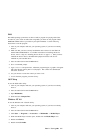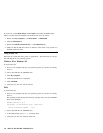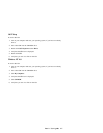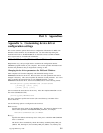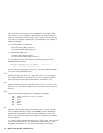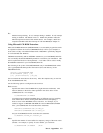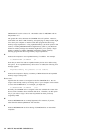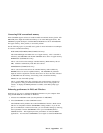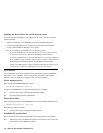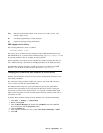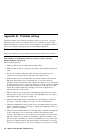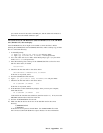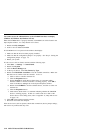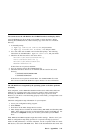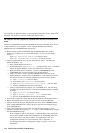Conserving DOS conventional memory
If the CD-ROM support software is loaded in DOS conventional memory (below 640
KB RAM), there might be insufficient memory to run some DOS applications. The
CDSETUP program attempts to load the IDE CD-ROM device driver and MSCDEX
into upper memory, when possible, to avoid this problem.
See the following topics in your DOS user's guide for more information on techniques
to conserve conventional memory:
DOS=UMB, DOS=HIGH,UMB (CONFIG.SYS entry)
This loads DOS high and enables the use of upper memory. This is essential to
effectively load MSCDEX and the IDE CD-ROM device driver in upper memory.
HIMEM.SYS (CONFIG.SYS entry)
This is a device driver that manages extended memory (RAM memory above 1
MB). Windows automatically loads this device driver.
EMM386.EXE (CONFIG.SYS entry)
This is a device driver that allows the extended memory made available by
HIMEM.SYS to be used as expanded memory. The MSCDEX /E parameter
might be used in conjunction with this device driver to move the cache allocated
by MSCDEX into this memory, thus freeing some conventional memory.
MEM /C /P (use from DOS prompt)
This is a useful DOS utility that will display the current memory allocation in
your computer to help you understand where device drivers and programs are
located. To display the MEM parameters available, at the DOS prompt type
mem/?
Enhancing performance in DOS and Windows
Following are two ways to enhance CD-ROM performance on your computer when
using the CD-ROM drive with DOS or Windows:
1. Allocate more MSCDEX cache (see /M parameter for MSCDEX).
2. Allow SMARTDRV to cache CD-ROM accesses.
The CDSETUP utility disables the cache CD-ROM data function. Multi-session
CDs are not compatible with the SMARTDRV caching method. If you do not
plan to use PhotoCD or multi-session CDs, you can reenable caching by removing
the /U parameter from the SMARTDRV line in your AUTOEXEC.BAT or
CONFIG.SYS file. This might improve the performance of some CD-ROM
applications. You must have SMARTDRV 5.0 or higher to cache CD-ROM data.
Part 3: Appendixes 3-5



